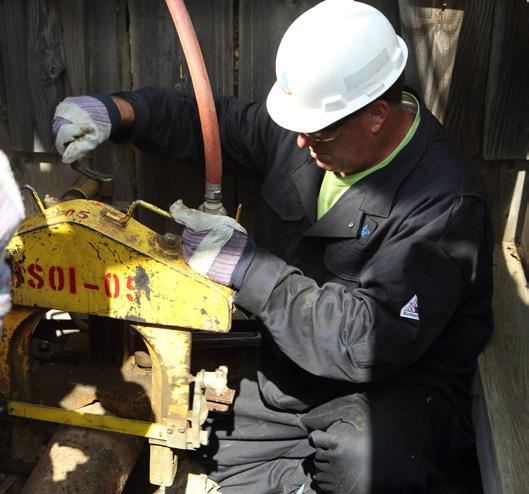
5 minute read
How to Prepare for a Technology Career
When we talked to IT recruiters in April about IT roles that were fading in importance, four came up frequently: system administrators, project managers, quality assurance engineers, and back-end and front-end engineers (as opposed to full-stack developers.)
As for IT roles with plenty of upside for the future, recruiters cited product managers, security professionals, analytics pros, and data scientists and engineers.
Articulate your value, IT job hunters
The way Zeile sees it, the trend is for companies to double down on essentials like the security, stability, and scalability of corporate infrastructure over creating a prettier website or more elaborate apps. In other words, they are addressing the technology needs they see as absolutely essential and putting other things on hold.
Even if technologists may be insulated from the worst of the economic trends, Block says they will need to be able to articulate the value they offer to potential employers. “Those can come up with a message that says ‘I can make you money or save you money’ will get hired. Those who can’t, won’t.”
Article provided by www.enterprisersproject.com, a community helping CIOs and IT leaders solve problems. David F. Carr is a writer, speaker, student of digital business, and the author of "Social Collaboration for Dummies." He previously served as an editor for InformationWeek,
Baseline Magazine, and Internet World and has written for Forbes, CIO Magazine, and Defense Systems.
by B.E. Conrad T he technology sector has been going strong, and that growth is likely to continue for the foreseeable future. Advances in artificial technology and the changes the future will bring mean there will be more need for highly skilled workers than ever before. For young people, the training for this technological future often focuses on high school and college courses. Education in science, technology, engineering and math, the so-called STEM fields, is increasingly popular, but what if you are too old for school and already ensconced in your career? If you are already in the workforce, but looking for a fresh new challenge, transitioning to tech could be a smart move. There are many ways to gain the skills you Consider a Combination Position Not all tech careers are the same, and the skills needed vary widely from position to position. If you are working in a non-tech position and looking for a new challenge, why not consider a combination or crossover position? Some career paths, including positions like business analysts and quality assurance technician, use a combination of technical and non-technical skills to get the job done. If you have great people skills and an eye for detail, adding some technological training could help you qualify for a great new crossover career. Highlight Your Past Achievements will need for a successful transition, and It can be hard for an employer to take a there are many valid paths to success. Here chance on an unproven worker, especially are some tips for transitioning into a great with positions as critical as the IT staff or new tech career. network support. Even if you are already
with the company, the boss may view you as an unproven entity in your proposed technological career.
To fight back against this preconception, highlight your past achievements. Focusing on the positive and pointing out what you have already done could set their minds at ease and convince them to give you a chance.
Ask for a Probationary Period
When you are transitioning to a new tech career, the only thing you can hope for is a chance to prove yourself. The abilities you have demonstrated may get you in the door, but you will still need to prove you can do the job.
If your employer is still uncertain about the tech transition you are proposing, try asking for a probationary period. This testing period will allow you to prove what you can do and showcase what you have to offer.
BUILD A BETTER PHILADELPHIA CREATE A CAREER THAT MATTERS

Seek Out a Tech Mentor
Sometimes the best way to learn about new technology is to shadow the people who do it every day. Seeking out a mentor is a great way to learn the technological ropes, especially if you hope to transition into a similar career.
If you want to transition from your current job to a new career in technology, ask your boss about this type of mentorship. You could spend your break time helping the IT guy install cable or shadow an experienced technician during your lunch hour. If you cannot find a mentor in-house, joining local computer club or talking to your tech-savvy friends could be the next best thing.
Teach Yourself - But Document the Results
If you are looking for a technology career but lack the skills, don't despair. There are more opportunities to train you than ever before, and many of them are completely free.
From instructional videos on how to install CAT5 and fiber optic cable to boot camp style courses that help you learn the most popular operating systems from the inside out, there are resources everywhere you turn.
So take the initiative and get the training you need. When you feel you are ready, you can document your abilities and demonstrate what you have learned by earning certification, passing industry-approved tests and showing your employer the results.
The future of technology is bright, and workers with the right skills should be in demand for some time to come. If you want to get in on the action and enjoy your own tech career, the tips listed above could help you make a successful transition. America’s natural gas industry is growing fast. With new technologies and new products it’s leading the charge to a cleaner, greener future. We’re PGW – the country’s biggest municipal natural gas company – and we’re building a better energy economy for all.



Our award-winning teams are engaged, determined, and rewarded.









